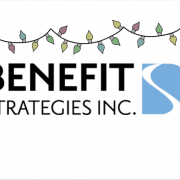If your key employees are like most other Canadians they are saving for retirement and dreaming of the day they retire.
Pursuing leisurely activities such as travel, hobbies, volunteering, and spending more time with friends and family are likely at the top of their list when they are no longer tied up by the responsibilities of work. But without a steady paycheque will they be able to support their leisurely lifestyle – and what about unexpected expenses such as health bills?
This is why employee benefits and retirement planning is a must in order to make saving for retirement a possibility. Retirement planning is also a key Executive Benefit that your company can offer to help attract and maintain key employees within your workforce. Most employees find Retirement Plans important as many are not in the habit of regularly putting aside money for retirement.
Your employees also deal with the many costs of living expenses such as mortgages, education, raising children, food, and other unexpected expenses that often get in the way, preventing employees from properly saving for retirement, especially during their earlier years in the workforce.
The important questions then become paramount:
- When should your key employees start saving for retirement
- And how can you, as their employer, help with their retirement planning?
Here are three critical pieces of advice we’ve put together to help you explore the topic of employee benefits and retirement planning.
1. Help Employees Develop Good Retirement Saving Habits
Starting to save for retirement at a young age (even in very small increments) can help establish good lifelong saving habits.
Even though many employees find it much harder to actually do it, most do understand that every penny set aside for retirement early on definitely helps, allowing for the benefits of tax-savings and compounding interest.
As an employer, you can empower your key employees to start saving (even if it’s only small) for their future.
2. Keep Your Employees Informed with Retirement Planning Information
Your employees can also benefit from proper information and education in regards to saving for retirement. The big question for many Canadians is how much money will they actually need to retire? Helping them start to understand this number (and how they can achieve it) can help ease their worries and set them on the correct path of retirement planning.
The following outlines several factors that go into the financial influences that affect retirement savings. A good employee benefits and retirement planning specialist can help explain and incorporate these into an effective Retirement Plan:
- Lifestyle choices
- Monthly and annual expenses
- Any additional accumulated savings
- Any monthly pension income (through private or government sources)
- Expected investment rate of return
- Rate of inflation
Your company’s Employee Benefits Planner can provide useful retirement planning tools and can even advise you on the best ways to inform your workforce on retirement best practises.
3. Help Employees Plan for Retirement within 10 Years of Retiring
There are so many unknowns in your twenties and thirties that it can be hard to establish a formal retirement plan. Some of these unknowns include health, value of assets, rate of inflation, rate of return, and so on. This is why many retirement strategists will recommend that a formal retirement savings plan can come later in life when you are closer to retiring.
A general rule of thumb many people follow is to start seriously thinking about their retirement plan approximately 10 years before retiring and to formalize an official retirement plan 5 years before retiring.
This is when your company’s Employee Benefits Planner can step in and work with employees nearing the end of their career. Professional advice, accurate number crunching, and support through the retirement transition are very valuable to those gearing up to retire. For more information, call us at 1-780-437-5070.










